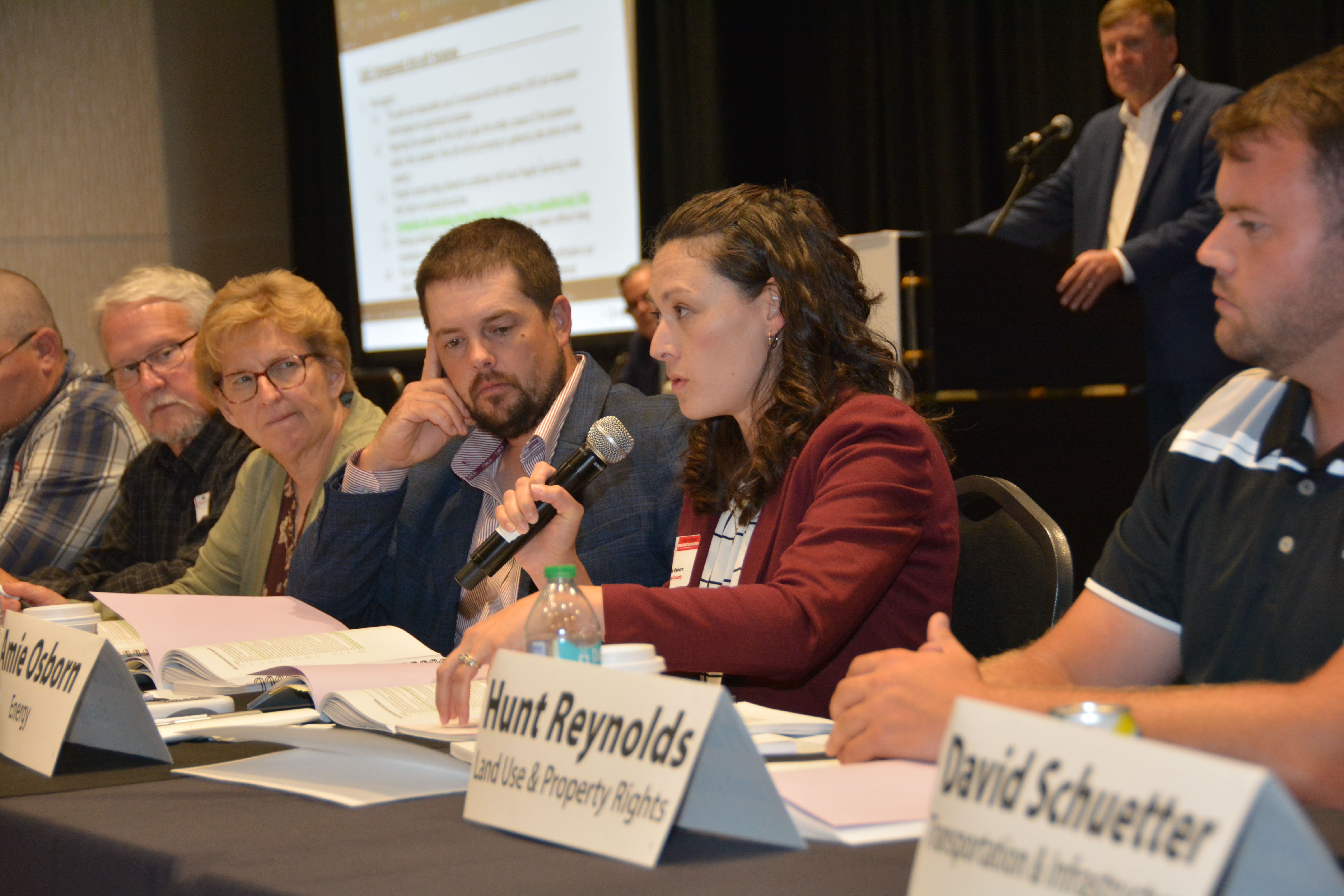Stay Informed
Taking a stand: INFB delegates discuss energy, taxes and more
Indiana Farm Bureau delegates discussed issues including energy, taxes, property rights and more during the annual delegate session.
The purpose of delegate session was to determine the policy positions of the organization for 2026. It was held Aug. 16 in Noblesville, Indiana.
“Our annual delegate session is really the foundation of this organization,” said Randy Kron, INFB president. “Farm Bureau is widely recognized at the local, state and national level as a trusted source for information on policy impacting agricultural issues. Legislators know how involved our grassroots are at creating these policies every year.”
INFB’s policy development process begins at the local level. Each year, all counties can make policy suggestions or edits. Those suggestions are evaluated by a resolutions committee before being brought to the full delegate session. The grassroots structure is vital to ensuring that INFB members can voice their opinions.
During this year’s session, there was discussion among delegates about renewable energy projects and where they’re located as well as making nuclear energy a priority, especially in investing research and money into creating small modular nuclear reactors at existing or decommissioned energy producing facilities.
“Energy is always a widely discussed issue among our membership,” said Katie Nelson, INFB executive director of public policy. “We also heard many comments this year from the delegate floor about the importance of preserving prime farmland and incentivizing future projects to be on nonproductive ground.”
Taxes was another issue highlighted in many areas of the policy book during the delegate session. Delegates voted to oppose any tax on and to freeze property taxes until they are eliminated. The language approved in the book suggests that property taxes be replaced from income or sales tax services, with exemptions for ag, medical and business to business.
Other positions supported by delegates included new home-based vendor language to make it easier to produce and sell locally grown food, and language on implementing civil and criminal penalties for nefarious unmanned aircraft systems (drones) being used over agricultural land and facilities.
During the session, delegates also voted on members who would represent INFB at the 2026 American Farm Bureau Federation Convention. The AFBF Convention will be held in Anaheim, California, in January. The INFB delegates chosen will discuss policy positions for the national organization with representatives from all 50 states and Puerto Rico. Five county Farm Bureau leaders were elected as delegates for the AFBF Convention:
- Lana Wallpe, Benton County
- Greg Orschell, Franklin County
- Paul Jacobs, Huntington County
- Matthew Lucas, Jackson County
- Mike Patka, LaGrange County.
Before the event concluded, INFB Vice President and Indiana State Rep. Kendell Culp awarded Mark Sigler, retired COO and treasurer, the Indiana Distinguished Hoosier award on behalf of Gov. Mike Braun. This award recognizes individuals who have made significant contributions to their communities and whose qualities endear them to Hoosiers. It's one of the highest awards presented by the governor.
Over the next few weeks, the INFB board of directors will determine the priorities for the 2026 state legislative session. Federal priorities are set at the AFBF level based on input from all state Farm Bureaus. Now, the INFB public policy team will work with regional managers, district directors and county Farm Bureau members to decide which priorities will set the stage for the organization’s efforts at the Statehouse and in Washington, D.C.





